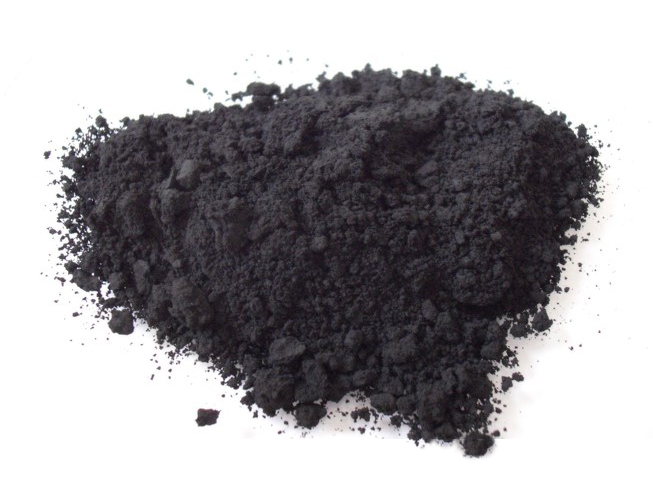
Image by FK1954 – Own work, Public Domain
Carbon black is not the most interesting stuff to look at: it’s a black, slightly fluffy powder that’s almost identical to soot. It’s pretty nasty too, potentially carcinogenic and with a massive environmental footprint.
However, carbon black is something that keeps the modern world running, because it’s a vital component in our tyres. Virtually every tyre on the road uses carbon black as a filler, where among other jobs, it helps dissipate heat and protect against UV damage. And given that the average tyre contains around 3kg of carbon black, manufacturers need a lot of it.
This means that if the carbon black supply dries up, tyre manufacturers simply can’t make any more tyres.
That fact has suddenly come into sharp focus, because the world’s second largest supplier of carbon black happens to be Russia. Manufacturers throughout Europe and the world rely on Russian carbon black, produced in that country’s vast fossil fuel industry. In fact, around 54% of Europe’s carbon black supply comes from Russia.
Since the Russian invasion of Ukraine on February 24th, its carbon black supply has been choked through a combination of sanctions, logistical problems, and manufacturers withdrawing from the country.
For the tyre industry — already reeling from supply chain crises and Covid downturns — it’s a body blow.
Can European tyre manufacturers survive?
There’s no doubt that the carbon black shortage is causing some headaches for manufacturers. Back in March, Remix predicted that the entire European industry could grind to a halt. The article was published after shortages caused the Michelin plant in Cholet, France, to shut up shop for eight days,with other manufacturers stretcxhed to the limit. Finnish tyre giant Nokian looked particularly vulnerable, given that it imports the lion’s share of its raw materials form Russia.
Yet the industry has faced carbon black shortages before and survived. In 2018, for example, Indian manufacturers experienced a massive downturn in business due to supply issues. The same shortage also affected US tyre makers.
Right now, manufacturers are scrambling to find alternatives to Russian carbon black, and there are signs this is succeeding. In particular, what’s bad news for Russia has been good news for China. Their carbon black exports to Europe rocketing from 400 tonnes in February to 11,000 tonnes in March. The Middle-East and India are other potential sources.
Whether this is sustainable in the long run is anyone’s guess, but the point is that the tyre industry is nothing if not resilient. Rubber, you could say, usually bounces back.
And speaking of sustainable (in another sense), the current supply issues have sparked interest in recovering the material from end-of-life tyres has sharply increased. At least that’s one silver lining round the carbon black cloud.
The BK Tyres blog covers a wide range of topics related to tyres and driving.
For mobile tyre repairs and replacement tyres at competitive prices, contact BK Tyres. We can fit tyres at your place of work or at your home throughout South Oxfordshire.
